

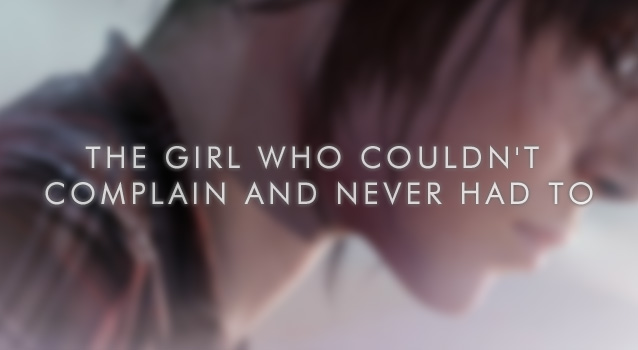
It took me a long time to write this piece, if only because I respect quite a lot of the articles that have already been written on the subject of women in the gaming industry and the troubles the fairer sex have faced. I'll reiterate this far too many times in my upcoming sentences, but just for the sake of transparency, this is not meant to sweep what is happening to other women under some sort of a giant rug.
Not in any attempt to diminish the experiences of other female journalists who have come forward, speaking out against gender discrimination, I want to show a different side of the gaming community. A side that I have always found to be accepting and welcoming, one I wish I could share with every woman who has ever felt pushed aside.
Post-E3, well, scratch that, post-any convention, the stories start surfacing about how women were offended or discriminated against by men (or sometimes other women) in the industry. Gender has been a hot button issue in games for almost a decade now. It's no wonder that there are blog posts, YouTube videos, and passionate op-ed pieces detailing the horrors of being a female in this industry. Whether these women are designers, journalists, or just simply gamers, they all have the same story to share, just with different (and equally you-will-lose-faith-in-humanity) details.
For some reason, I have been spared these terrible experiences, or perhaps I'm just insanely naive.Do I believe these stories? Yes. Can I honestly say I have felt this way? No. That doesn't stop me from feeling serious empathy for these women, as I think everyone should be treated equally and given the chance to do what they love without ridicule. For some reason, I have been spared these terrible experiences, or perhaps I'm just insanely naive.
As odd as it may sound, when I am in journalism-mode or just gaming, I lose my gender. I become news incarnate or whatever character happens to be on screen. If someone makes an offhand remark to me in a multiplayer game, I've never assumed it was directed at my gender, merely at how I was playing. Does this mean I might be oblivious? Potentially, but I can't recall a time when someone shouted at me because of my vagina. From what I've read online, I might be the only woman who hasn't had to mute a misogynist on Xbox Live.
If you think I have this attitude because I'm some young-faced chipper kid fresh out of college, product of a generation that knows women at least play Call of Duty: Black Ops or Peggle, you'd be wrong. I've been playing games since 1988, about the time when I could first physically hold a controller, or at least set it on the ground and hit it with my fist, but let's be honest here, I still sometimes do that with fighting games.
I grew up with my "nerd" flag flying high, but I simply didn't self-identify as such. Not once did I believe that video games were exclusively for men or that I was pioneering something epic for my gender, as I stayed up through the night at all-girl sleepovers trying to beat Final Fantasy IX. My brother can be thanked for that. The attitude, not FFIX. I bought that shit with my own money.
(Almost) always inclusive and eight years my senior, my brother forced me to earn my keep when it came to gaming. Where single-player games were concerned, "turns" ended with death, and I died a lot. I was awful at Link to the Past and spent the majority of my first "playthrough" just watching my brother traversing dungeons and collecting pieces of the Triforce. The only thing in our cohabitation I learned to be off-limits was crashing his D&D nights with a blanket tied around my neck as a cape, pretending to be a grand adventurer like him. We shared any newer console that was released until he left for college, effectively doubling the amount of games we could afford.
I don't know why he didn't discriminate against me, but there are a number of potential reasons. It could have been simply because I was his sister, he assumed I would run screaming to my mother, or maybe my brother is just that great of a guy. Whatever the reason, he instilled a sense of belonging in me that I haven't been able to shake since.
Could this have stemmed from a need of acceptance? Yes, I would almost certainly say so. I wanted to be cool and my brother, with his video games, weekly D&D sessions, and RoboTech marathons, was the coolest person I knew. At some point in our lives, we deem something "awesome" and, however wrong or right we end up being, that concept is integrated into who we are. For me, that happened with video games when I was four.
Being genderless to these people, my best friends, leveled the playing field and helped me to continue onward as an equal, a comfort that should be commonplace.Lumping my experience in middle school, high school, and college all together, I can safely say I've never once felt pushed to the side or talked down to as a woman who plays games. Although—if you came here looking for some secret formula, I can't offer it. I can't even imagine the audacity required for me to sit here and lecture at women who have had problems with in-game interactions, as though they are the broken ones. From what I can tell, I've managed to accidentally avoid nasty people and been lucky enough to have a core group of gamer friends who never viewed me as a woman. Being genderless to these people, my best friends, leveled the playing field and helped me to continue onward as an equal, a comfort that should be commonplace.
In college, I did something that most might consider a terrible idea, which is really just part of the college experience, but instead of action based purely on whim, this was a grand gesture I'd been planning for years. I walked into a tattoo parlor and began planning a series of two half-sleeves chock-full of my favorite video game characters. Eight years later, I am still working on getting them colored in, but both of my arms are decked out with various characters. Some are from my youth, games that I respect so deeply as a designer that I couldn't leave them out, and then a few just for fun. What I have tattooed on me doesn't matter (it's just a montage of characters from Leisure Suit Larry and sprites from Burger Time. Kidding! I'm kidding!), but I am aware that simply having these tattoos changes the "Perception of Jen" to random strangers. You don't have to get to know me to find out that I like Nintendo or Valve, it's right there on my sleeve.
Has this made life easier for me? Surprisingly I'd say yes, but I never felt like I was having a hard time to begin with.
When I left college, I had a series of jobs in the games industry as an artist. I was whole-heartedly accepted into the fold of the team without question or disapproval. You know that feeling you get when someone includes you because they feel obligated? I've never encountered that. I've been lucky enough to be consistently surrounded by incredibly supportive people, both men and women, who respect me for who I am and what I do. Talking with other women in the industry, I've found it's somewhat normal for other women to ostracize newcomers. I have a huge theory about women, being the alpha female, and how that relates to video games, but I can save those conspiracies for another article.
Moving from design to journalism, I interacted with a larger group of people, all of which were respectful and treated me as just another news grunt. As part of the majority-woman subreddit r/GirlGamers, I did feel quite a bit of pressure from other women gamers to say negative things about my interactions with men in the gaming industry. They weren't interested in hearing about my sunshine-and-rainbows experience with being a gamer who happened to be a woman, and who could really blame them? A story where nothing bad happens sounds like a pretty boring story.
Let's tackle conventions. Typically, when I attend conventions as a journalist, I wear whatever clothing I feel comfortable in. I never deliberately show off my tattoos because I got them for myself, not for some random stranger who might want to take a picture of them, although that is something I'm completely okay with. Men and women will grab my arms, twisting and contorting me like a child playing with a marionette doll, in an attempt to see all my tattoos. Don't get me wrong, I expect people to be interested, but a simple "Would you kindly let me see your arms?" goes a long way.
Moving past my issues with space, I always have a fantastic time at conventions. I play games, people generally leave me alone and let me do my thing, but I always feel included. I chat with developers about their titles and if anything, find I'm treated as though I know more than I sometimes actually do. Do the tattoos factor in? I would admit most of the time, yes.
So at E3 2012, I conducted an experiment. I grabbed my semi-professional light blazer and hit the floor with no tattoos showing, a schedule full of interviews and pages upon pages of questions I planned on throwing out. Every interview, every demo, every single person I spoke to, treated me with respect. I had developers by my side during no less than seven hands-on demos, all of which allowed me the space to explore and break their game. I somehow completely missed seeing ANY booth babes, aside from Jessica Nigri, who I believe to be a gamer, merely an attractive one. I chatted with other journalists, made friends, contacts, played an hour's worth of Johann Sebastian Joust in Indiecade, and just generally had a fantastic, albeit incredibly busy, time.
It was a very freeing experience. Knowing that my tattoos didn't play a part in my acceptance. I had gone so out of my way for my love of gaming that I worried my tattoos overshadowed my actual abilities and knowledge, but I was wrong to feel that way. Even after pulling myself out of the "Gaming Obsessed Nutter" persona (the only way I can assume I appear to random people) and walking in the shoes of the "Female Gaming Enthusiast," I was met with welcoming conversations and equality.
My experiences are rare, I know, and I can't apologize enough to women who have to fight so hard for what they love. If I had been in the same position throughout my life, I don't know if I would have stuck to my passion or thrown my arms up in defeat.
Decent people may wonder, what can we do about this? How can we fix this? In my opinion, the best thing anyone, regardless of sex or gender, can do is to simply pay the attitude of inclusion forward. I'm not telling you to single out a woman who plays video games and stalk her, constantly telling her how great you think she is, because that isn't the core of what humans strive for. We just like feeling equal. Free to do what we love. And in this case, it just so happens to be video games.
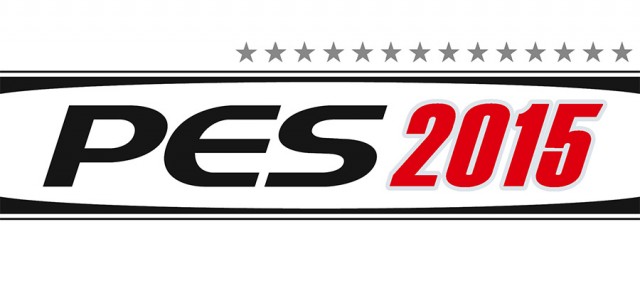
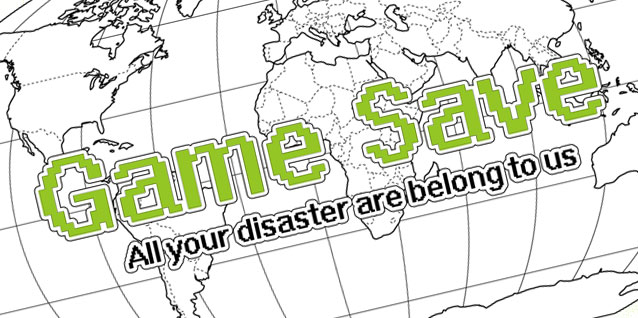
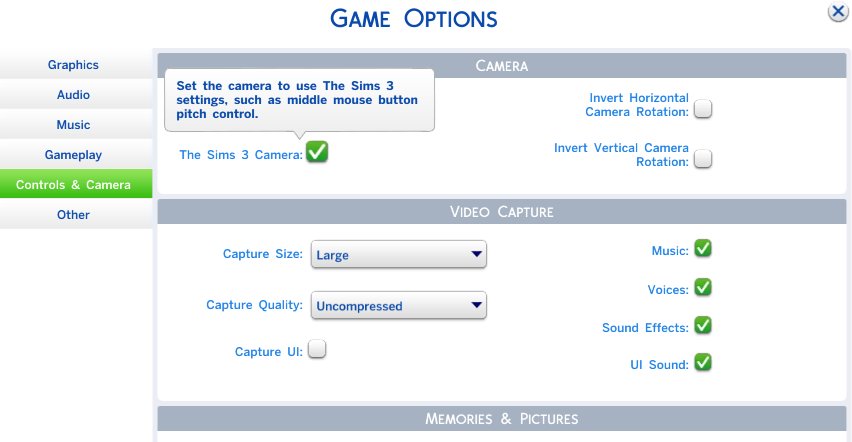
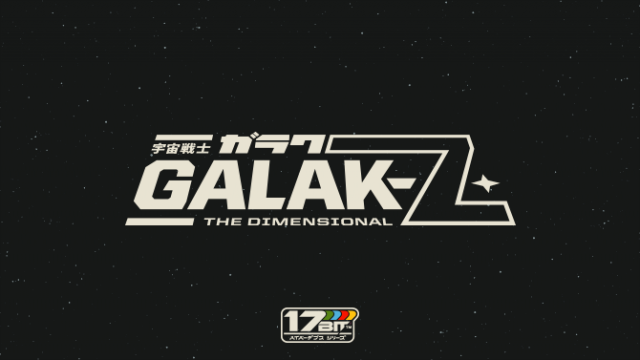
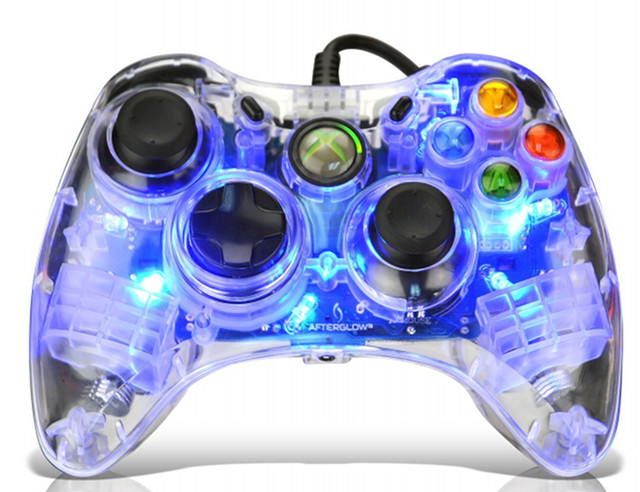 Should You Buy An Aftermarket Controller For Your Console?
Should You Buy An Aftermarket Controller For Your Console? Fighter Within Wiki: Everything you need to know about the game .
Fighter Within Wiki: Everything you need to know about the game .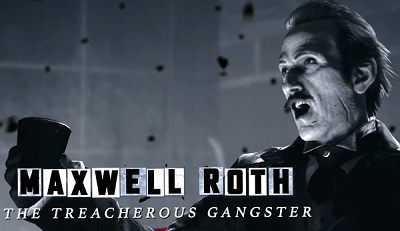 Sequence 8 - Fun and Games: Assassin's Creed Syndicate Walkthrough
Sequence 8 - Fun and Games: Assassin's Creed Syndicate Walkthrough Destiny: How to choose the best weapon type and weapon archetype for your Guardian.
Destiny: How to choose the best weapon type and weapon archetype for your Guardian.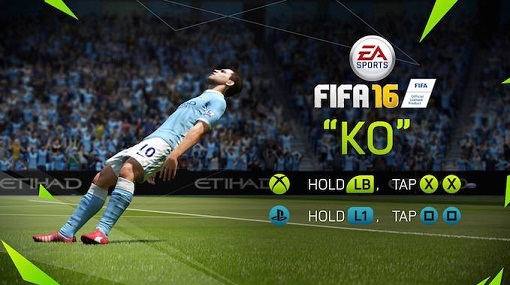 FIFA 16 shares new video with celebrations of goals
FIFA 16 shares new video with celebrations of goals